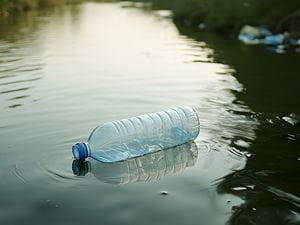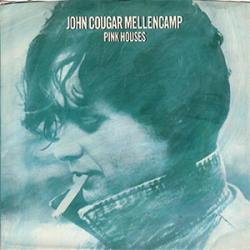
It’s a question that has vexed evangelists for decades: "with churchgoers getting older and older, on average, how do we break through to the younger demographic?"
Well, we know that environmental issues are to the fore amongst young people. Could this be the solution?
Whether it’s climate change or fossil fuels, my generation are keen to go green. Perhaps a Christianity that fights for the planet will help to draw Generation TikTok back to the Church.
One clever individual has reached the same conclusion, it would appear. This providential paragon, you see, put a fresh, green twist on the Gospel… by littering in a river!
“Environmentalists have criticized those responsible for dumping plastic bottles containing Bible verses in a river in Northern Ireland,” reported the BBC.
*Sigh* …typical.
It’s just like those liberals to platform know-nothing activists who’ve got it all wrong. In spite of this outrageous bias, however, the timeless wisdom of litter-based evangelism still shines through.
Do those yuppies in the Beeb not know that all the great men of scripture yeeted stuff into rivers? If they do know, then they probably don’t care; it’s a sign of these godless times, I guess. We read in Second Kings that Elisha the Prophet lobbed a stick into the Jordan – litterbug, I think not!
In the Book of Exodus, the Mother of Moses floated her child on the Nile to save him from the Pharaoh. Theologians thus agree that river pollution is biblically justified.
Which brings us back to the River Bann; and there is no doubt in my mind that every bottle thrown in there has been opened, read and thrown back in for the next person’s enjoyment. It’s Northern Ireland, after all; the terms ‘bomb scare’ and ‘suspicious device’ are very nearly synonymous here. You can understand why, then, picking up random objects — especially those with a reassuring, ‘tampered-with’ look — remains popular among us locals to this day!
Christ instructed his early followers to ‘make disciples of all nations’ (Matthew 28.19). They were to spread the Gospel far and wide, that all might be saved; and what better vehicle to do so than a waterway like the Bann? Whatever you put in a river, it gathers in the same place – near the mouth of said river, washed up in the vicinity. There is truly no better way to reach the masses, then – the one possible exception being a napkin-sized billboard in a dark alley.
Furthermore, it’s vital we spread the Word in a safety-conscious manner; we don’t want any casualties! Every textbook on public safety will tell you that your audience, who may have neither an ability to swim nor a lifejacket, are safest on the banks of a rapid watercourse. This is especially true when your evangelism has them stand as close as possible to the precipice.
Those who don’t fall in and get swept away to the North Sea have a chance to drink in the landscape. There is, you’ll agree, something about rubbish in a river that elevates the spirit of man a little closer to the divine. It’s a classic scene that has kindled the passions of romantics and revolutionaries down the centuries. That all those bottles, a font of inspiration in and of themselves, have some Bible verses inside… well, that’s icing on an already scrumptious cake!
Indeed, what follower of Christ wouldn’t feel inspired to spread the Good News by the sight of all that polyethylene? One glance upon that graveyard of bottles is enough to convince anyone that humanity deserves to be saved. Right now, my head is full of eco-friendly ways to bring sinners into the Kingdom. I plan, for example, to manscape the Nicene Creed into the hair of all 1,000 mountain gorillas left in the wild. That’ll surely 10x our turnout on a Sunday!
Harassment of endangered animals, however, is notoriously time-consuming. Luckily, there are other, equally sustainable ways to build evangelism into your daily routine. For instance, if you have a few spare quid and a luscious, biodiverse garden full of abundant wildlife, then pay someone to cover it in tarmac and spray-paint it with scenes from the Book of Revelation.
Before I get carried away, though, let’s end this little brainstorming session and summarise what we’ve learned. River pollution is a traditional Christian practice, whose heritage goes back to Moses and Elisha, the biblical prophets. Local sensitivities are accounted for, given how the people of Northern Ireland have never had a reason to fear strange-looking objects.
Forget new-fangled technologies like ‘the Facebook’, ‘the Google’ and ‘the TikTok’; a river that winds through rural Northern Ireland is by far a better tool for mass communication. Always assume that adults with full-time jobs are keen to put on their wellies and retrieve your literature by hand when they have a spare minute. I know that’s what I do with my days off.
Above all, you should come up with eco-friendly ways of your own to spread the Good News. Litter in the River Bann is a great start, and will have generated endless goodwill towards Christianity, but it cannot be final word.
Evangelism, that most noble of callings, is a task only suitable for the Greta Thunbergs among us: those with a vision to rejuvenate our natural world. As we labour in the Lord’s vineyard, then, let’s leave it in a right auld state… for Jesus!
9/17/2024 9:32:23 PM





